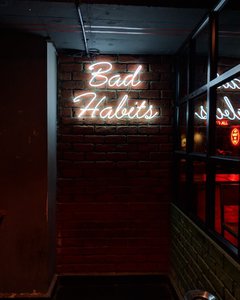The true cost of unintentional habits

How much does that daily cup of coffee or those weekly meals out cost over time? What if you cut out or reduce a few small recurring expenses and invested that money instead?
In this post I investigate the true cost of seemingly small recurring expenses and habits over time and the effect they have on our future net worth.
Table of contents
Unintentional habits
It's amazing how powerful habits are and how hard they can be to break. This can be a blessing and a curse. If the habit in question is excercising several times each week then it's a great one to have. Same goes for investing every month instead of spending our entire salary. However habits can also be bad and can sneak up on us without us realizing it.
When it comes to convenience, unintentionally creating a habit can be really easy. First there's the daily cup of coffee purchased from the shop down the road. Next there's lunch purchased from a takeout every day. Then there's eating dinner out a few times a week.
Sure these things cost fairly little on a per purchase basis but when we start making them a habit, it's worth considering how the costs add up over time and affect our journey towards financial independence.
The daily caffeine boost
Enjoying a good cup of coffee is something a lot of us can relate to, so i'll use that as an example.
A cup of coffee from Starbucks costs anything from $2 to $5 give or take depending on size and your tastes. Let's use $3 for the purposes of this example.
To calculate the true cost of a daily cup of coffee over time we'll need to take into account inflation on the one hand vs potential investment returns and compounding on the other.
Of course inflation and investment returns are not static and vary around the world. So for this example I'm going to use 1.7% inflation and 8% as an investment return.
Let's look at the numbers:
- Purchasing a $3 cup of coffee daily for 10 years at 1.7% inflation comes to a total cost of $11,826.80
- Popping that coffee money into an investment over 10 years at an 8% annual return results in $18,308.01
That's a $30,134.81 difference to your networth.
It's amazing that such a seemingly small purchase can have such a large impact when it becomes a regular habit. Just wait until you see how much purchasing lunch every day costs instead of packing your own and investing that money.
Me and my future self
When I find that something in my life has become a habit, I try to consider it in the context of my future self.
Achieving financial independence is exceptionally important to me. If I find myself spending money on something on a regular basis I weigh up the immediate convenience or enjoyment of the purchase versus the impact it's going to have on me achieving financial freedom.
In some cases, cutting out or reducing a regular purchase can reduce the time it's going to take to reach FIRE by several years.
Taking a packed lunch to work instead of purchasing it every day. Only going out to meals with family or friends on special occasions. These small things can cumulatively knock years off of reaching financial independence.
Finding the balance
Although running the numbers to figure out how much things cost over time versus investing that money can be a scary eye opener, I try to balance that with enjoying life along the way.
Our family goal is to reach financial independence as soon as possible while living a comfortable and enjoyable life in the process. For us, being frugal to the extreme and sacrificing life while on our journey towards financial independence isn't something we want to do.
I think it helps to be purposeful about spending money. Don't just spend on unintentional habits and convenience. Spend on things that bring happiness.
For example, my wife and I often enjoy sharing a bottle of wine together. Sure we could cut that out but I see that as time to bond and relax together. On the other hand, buying lunch every day instead of taking a packed lunch from home makes no sense to me and I would rather invest that money for our future selves.
Only spending money on what brings us happiness and not on unintentional habits of convenience is one of many strategies we use on our journey to financial independence.
Article by Brendon @ Money FI